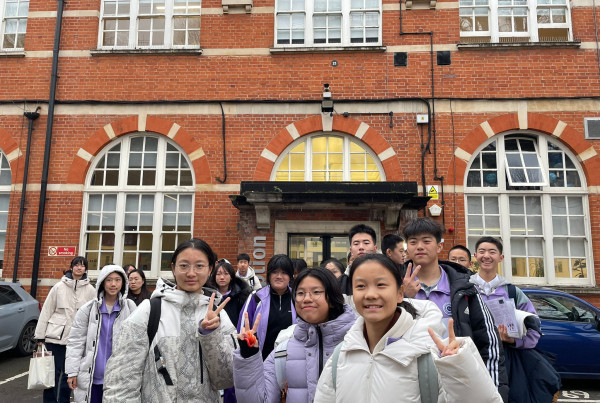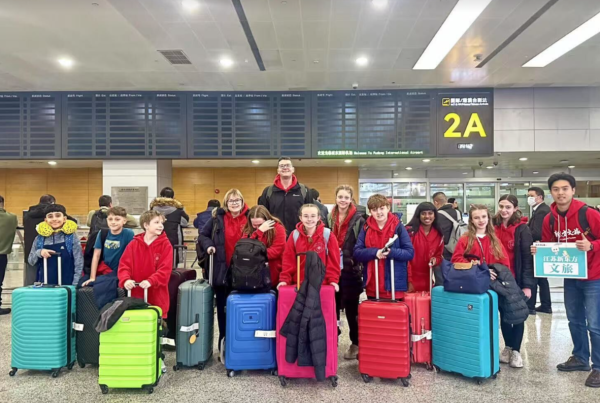Julie Sutcliffe, Education Development Lead at the Global School Alliance, reflects on the Francis Curriculum and Assessment Review - exploring its impact on language learning and global citizenship in schools.
The publication of the Francis Curriculum and Assessment Review marks a significant moment in UK education reform. As a MFL teacher, I’ve read the findings with a mixture of optimism, curiosity, and concern. There’s plenty to welcome – but also important gaps that need attention if we truly want a curriculum that reflects the diversity, voice and global connectedness of our learners.
Let’s start with the headline – the scrapping of the English Baccalaureate. For many of us in MFL, this feels like a long time coming. The EBacc may have raised awareness of the importance of studying a language, but it also narrowed school priorities and reduced curriculum flexibility. It often made languages feel like a box to tick for performance measures, rather than a joyful, creative, and cultural discipline.
Its removal could free schools to redesign a broader, more balanced curriculum, one where languages can thrive alongside the arts, humanities, and vocational pathways. But here’s the caveat: without EBacc protection, there’s a risk that MFL could lose visibility or timetable status in some schools. We’ll need to keep making the case for languages as core to global learning and life skills, not just as exam subjects.
One of the most promising recommendations in the review is the new oracy framework for primary and secondary schools. For language teachers, this is music to our ears. We’ve always known that communication lies at the heart of learning. Confidence, fluency, and expression matter as much as accuracy. If this focus on oracy leads to a genuine rebalancing of assessment, valuing how pupils use language rather than how they memorise it, then it could breathe new life into MFL classrooms.
The review’s call for greater diversity and representation in subject content also aligns beautifully with what MFL offers: real-world culture, global perspectives, and an appreciation of difference. Language learning naturally builds empathy, curiosity, and cultural capital. It helps students see themselves as citizens of a wider world.
There’s also mention of a new modern foreign language qualification, one that “banks progress” and motivates pupils to continue studying. If designed well, this could help us retain more learners beyond Key Stage 3 and offer a more inclusive route for those who find traditional GCSE languages challenging.
One of my biggest disappointments is what isn’t mentioned. There is no clear reference to supporting or encouraging Home, Heritage and Community Languages. This omission feels like a real missed opportunity. Our classrooms are linguistically rich spaces. Many of our pupils already speak more than one language at home. Yet too often, those languages are invisible in school life or assessment.
Recognising and supporting HHCL would not only celebrate students’ identities but also build bridges between home and school, promoting genuine inclusion and intercultural understanding. If we are serious about diversity and global citizenship, we can’t overlook the languages our learners already bring with them.
As with many reviews, the vision is ambitious, but the practicalities matter most. Recruitment and retention remain major concerns in MFL, and without investment in professional development, resources and training, even the best curriculum plans will struggle to land.
We need real support for teachers to deliver a richer, more flexible curriculum: opportunities to collaborate, share best practice, and learn from international colleagues. This is where organisations like the Global School Alliance can make a real difference. The GSA helps schools embed a global dimension, build international partnerships, and celebrate linguistic diversity, including heritage languages that the review overlooks.
Through the GSA’s ACTIVE framework, schools can audit their curriculum, develop global projects and gain recognition for their international work.
For MFL teachers, it’s a practical way to make sure our subject contributes directly to the wider school vision for global citizenship and curriculum enrichment.
If your school is thinking about how to respond to the new curriculum review, or if you want to strengthen your international work, the Global School Alliance offers free resources, CPD, and opportunities to connect with schools across the world.
Join the network today at www.globalschoolalliance.com/join.
By keeping global learning and languages at the heart of our teaching, we give students the tools to think critically, communicate confidently, and engage compassionately with a diverse and changing world.




